Ingredients
3 tbsp sunflower oil
1 tbsp mustard seeds
1 tbsp ground cumin
1 tbsp cayenne pepper
2 tsp ground turmeric or 5 tsp fresh turmeric, finely grated
Thumb-sized knob of ginger, finely grated
5 cloves garlic, finely chopped
1 fresh chilli, seeded and finely chopped
10-12 juicy large tomatoes – peeled and roughly chopped (or 2 x 400g tins)
2/3 cup apple cider vinegar
1/4 cup sugar
1 tsp salt
Summary
Oh Kasundi, the fiery Bengali condiment so very helpful for spicing up a lazy weekend omelette. Or giving that midweek dal a little punch on the side. Or jazzing up a plain old cheese toastie. There are many varieties of kasundi, but a common ingredient is mustard seeds. Here, they’re joined by ripe juicy tomatoes, cumin, cayenne and fresh turmeric, garlic and ginger. If you’ve got a bowl of ripe tomatoes on your kitchen bench, or a garden cranking out a steady supply, then a few jars of tomato kasundi aren’t far away.
Tomato Kasundi GF, VEGAN
Firstly, put a full kettle on to boil. Using a sharp knife, score the top of the tomatoes (where the stem was) with a cross, and place them in a large heat proof bowl. Pour the boiled water over the tomatoes and let them sit for a few mins before removing with a slotted spoon and peeling. Run the tomatoes under cold water and all the skins will rub off easily with your fingers.
Once peeled, roughly chop the tomatoes or bung them in a food processor and whiz to desired consistency.
Heat oil in a large saucepan. Add seeds and powdered spices, and stir for 5 minutes until fragrant – be careful not to burn them.
Add the fresh ginger, garlic and chilli and cook for another 5 minutes, again, be careful not to burn them.
Add remaining ingredients and peeled tomatoes and simmer for 1 hour. When you notice the oil sitting on the top it’s good to go. Spoon into prepared, sterilised jars* and seal well.
Kasundi jars will keep indefinitely if sealed properly**. Once opened, use it up in a couple of weeks and keep it in the fridge. With all it’s anti inflammatory and immune boosting ingredients, this delicious relish is bound to be a staple in healthy meals and snacks.
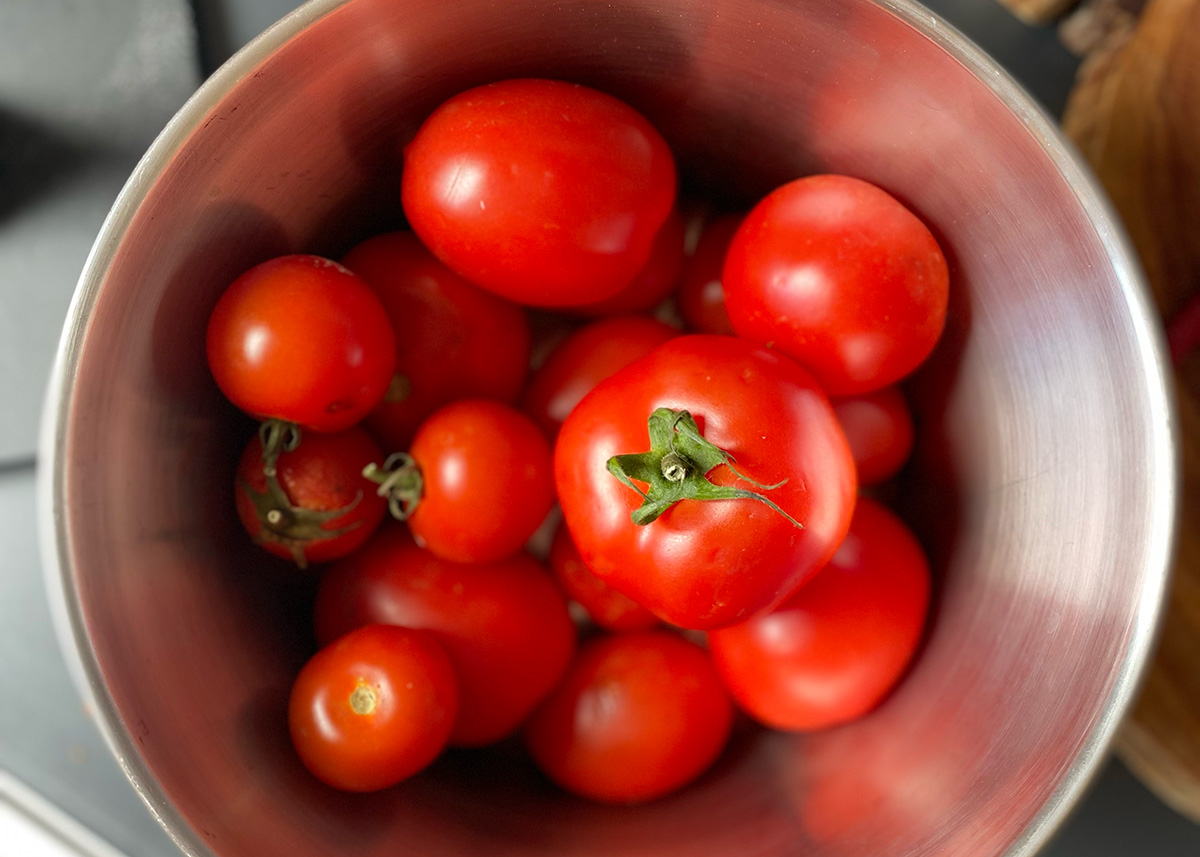
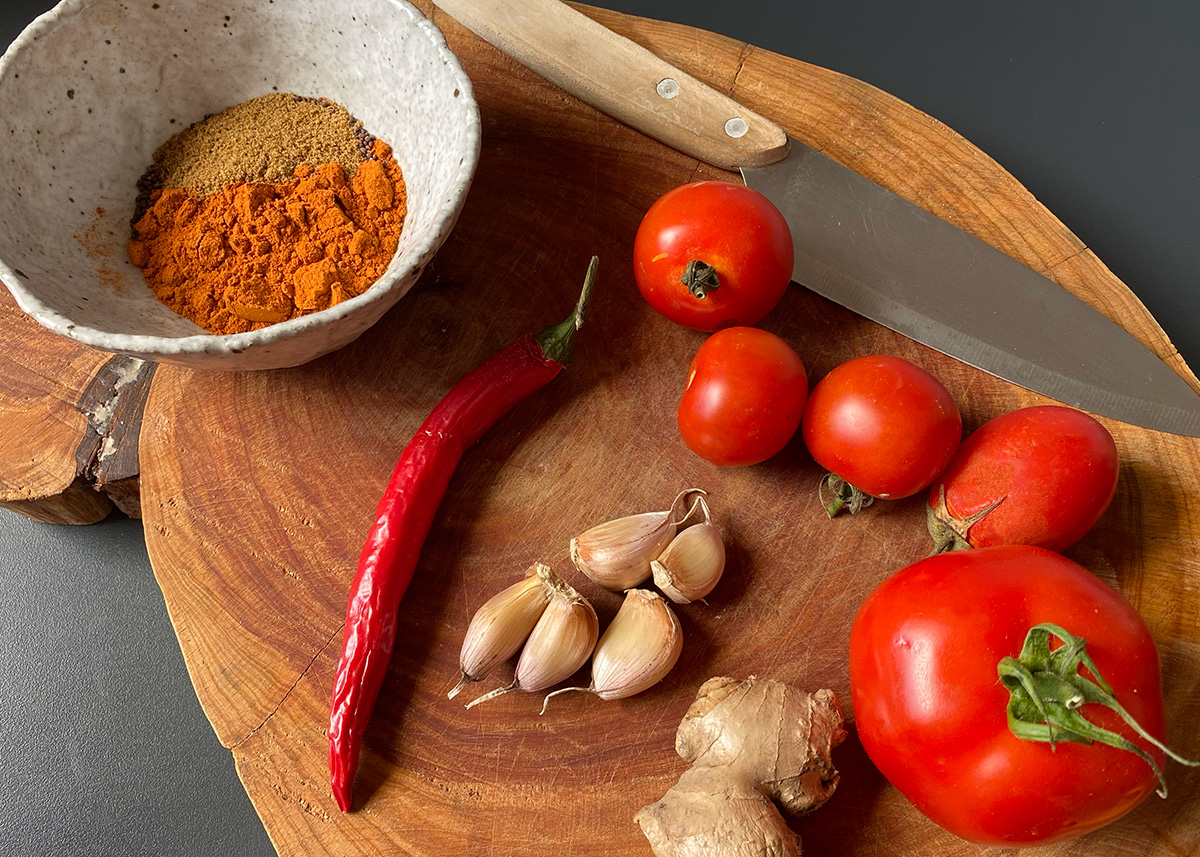
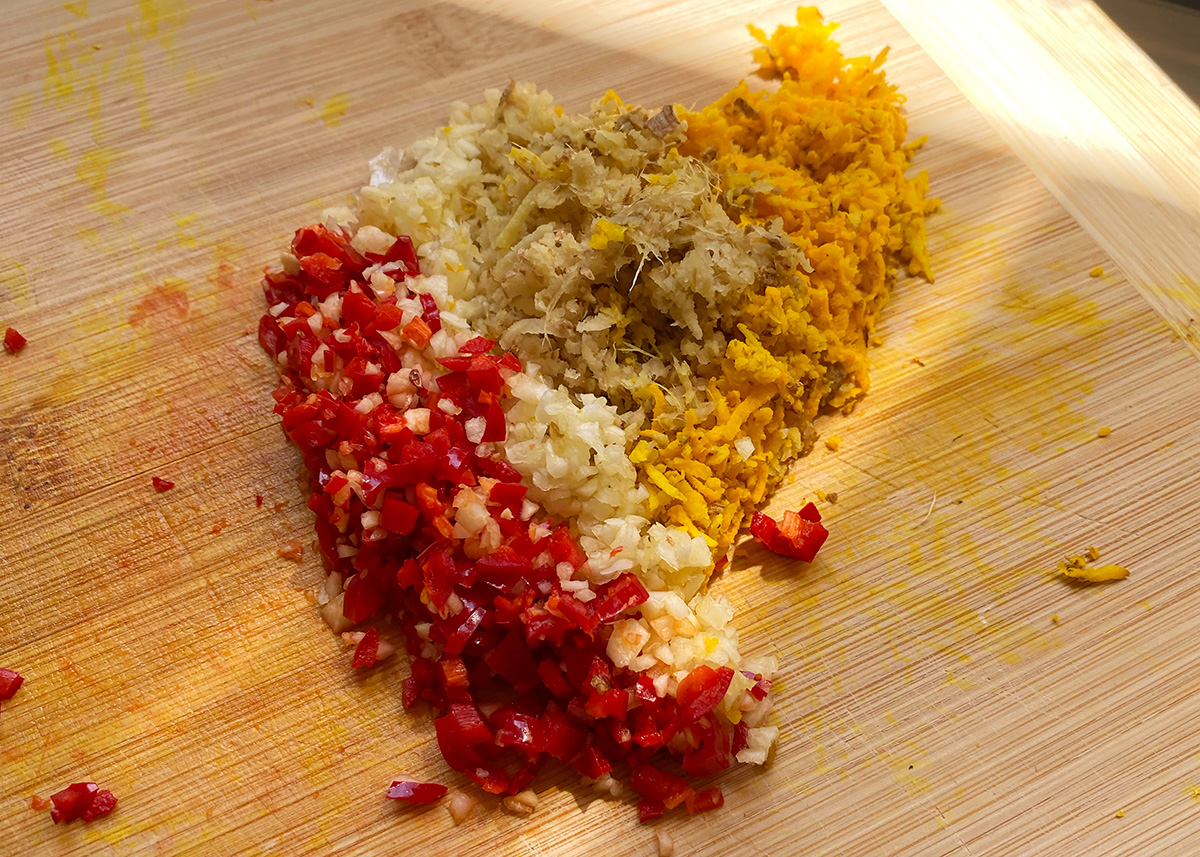
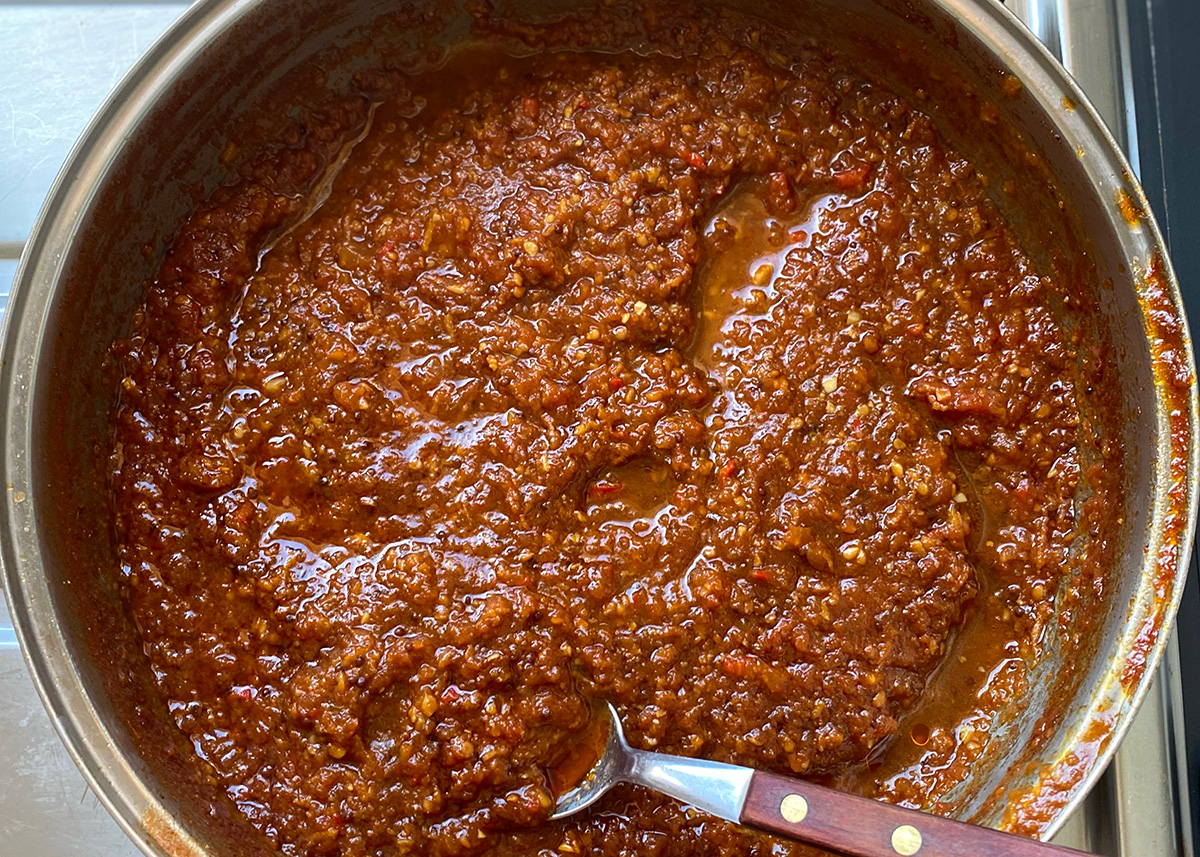
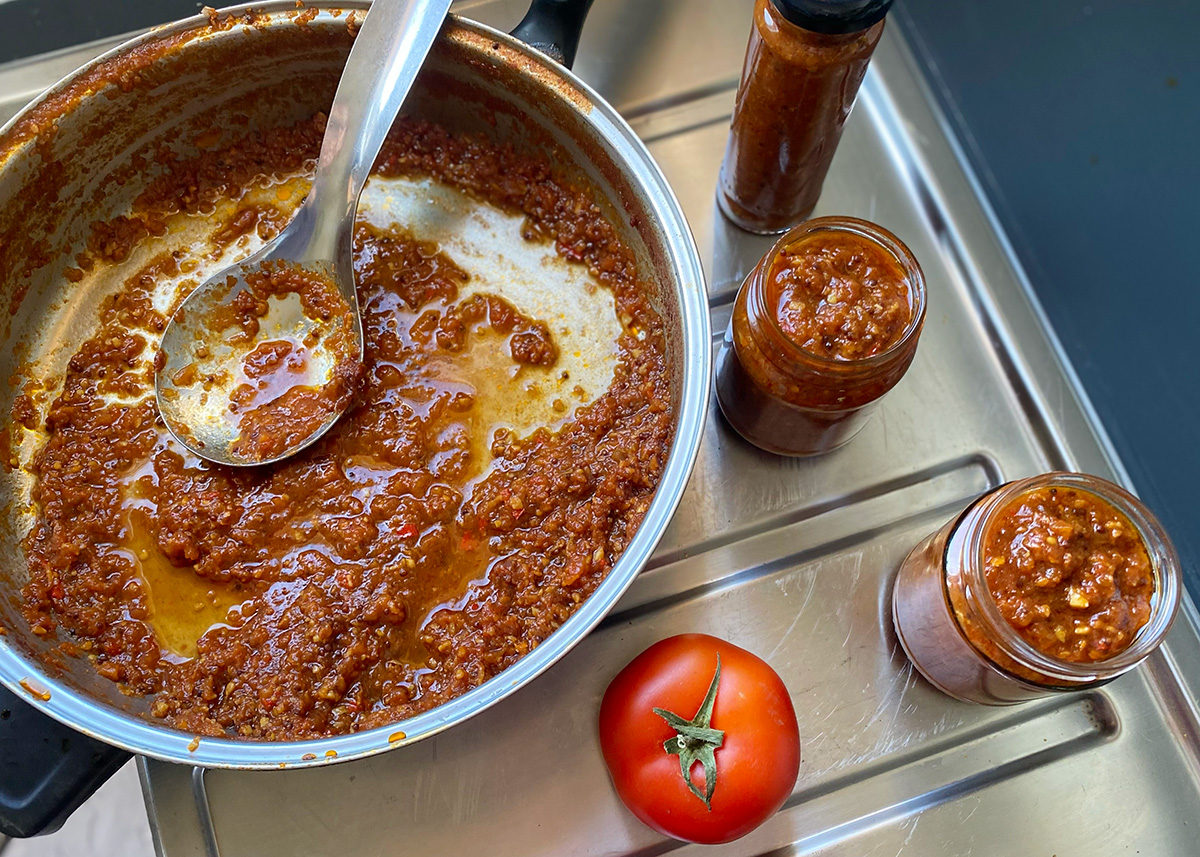
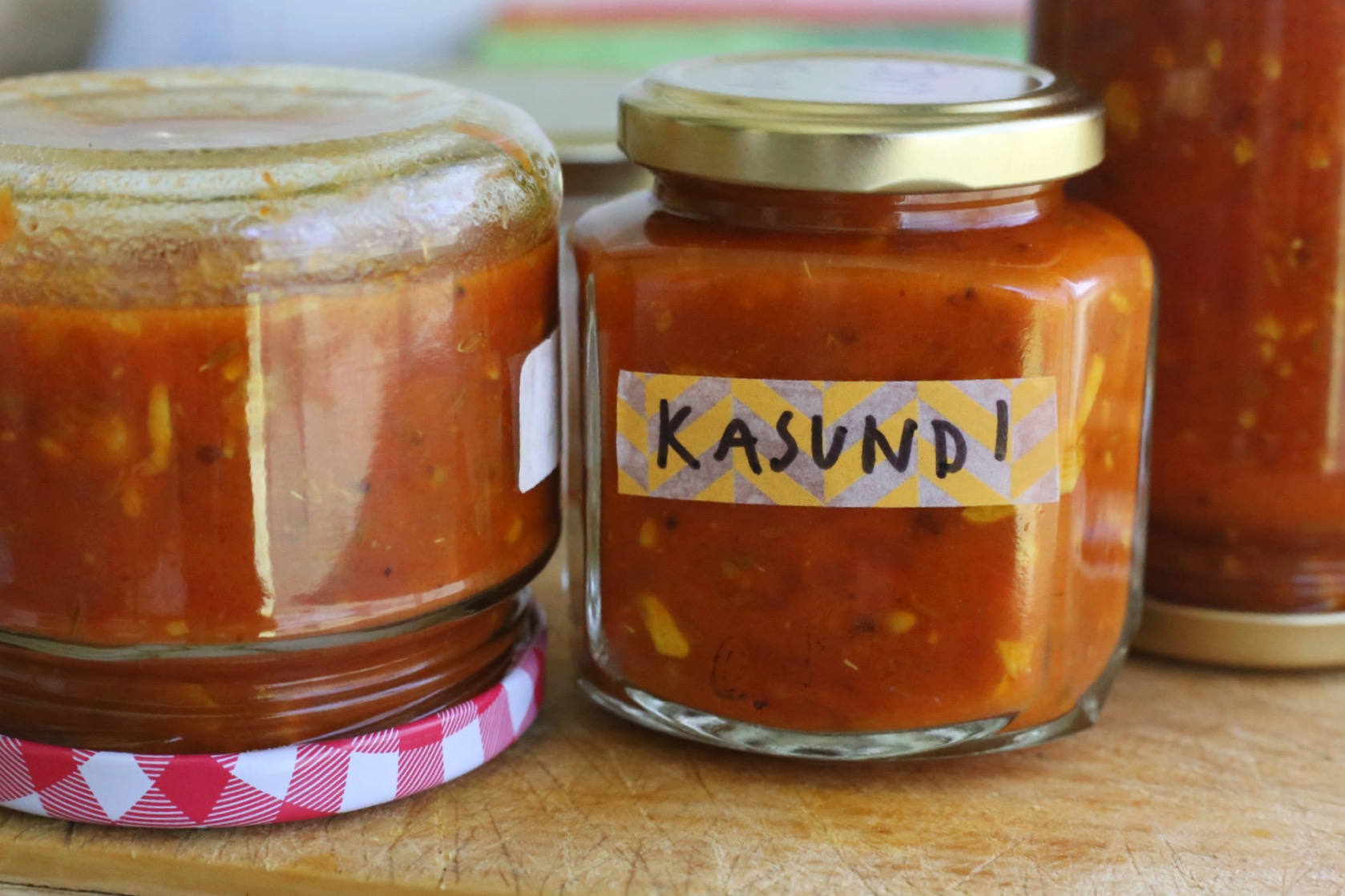
Hints and Tips
* To sterilise jars, preheat oven to 150°C. Wash the jars and lids thoroughly with hot soapy water, rinse and place upside down on an oven tray. Place in oven and leave for 15-20 mins** To seal jars, pop a tea towel or upturned heatproof bowl at the bottom of a deep saucepan, add the apricot jars and cover the jars in cold water. Bring the water up to a boil and simmer for 35 minutes then turn off the heat and leave to cool in the water. Once jars are removed from the water bath, check to make sure each lid has sealed itself properly – the little popper in the centre of the lids should be sucked down.
This recipe was adapted from a Delicious. recipe, personal experience and from comparing techniques with fellow kasundi loving friends. This should make about 3-4 small jars. Double or triple the amounts if tomatoes allow.

If the jar is sterilised in the oven, no need for the canning / waterbath technique, it’s a faff that might put off the cook-in-a-hurry. Fill the sterilised jars when the kasundi is hot. When it cools the lid should pop in, and that’s it, you’re done. No pop? Eat straight away. Water baths are great for preserving cold, uncooked ingredients, eg fruit in a light sugar syrup. I think American website recipes always tell you to do the canning technique because they’re paranoid someone will sue them if they find mould on their jam. Hopefully Aussies are smarter and less paranoid?!
Anyway, love your work. This sounds delicious and I have a glut of tomatoes, so here goes…
Love this tip Jo, and have to admit, we’re in the same boat as you. Those that pop in are stored and no pop get gobbled up! Good luck with your tomato glut 🙂